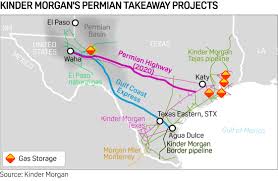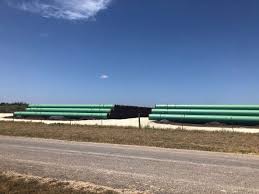
Landowners in the area popularly known as “Hills Country” in South have filed a federal suit against the government over a proposed major natural gas pipeline that will serve the Permian Basin oil field in Texas. The suit accuses the developers of skirting environmental law.
In a lawsuit filed Friday in the U.S. District Court for the Western District of Texas, the landowners said the project should be classified as an interstate pipeline and subject to regulation by the Federal Energy Regulatory Commission according to a report by E and E News.
The Permian Highway pipeline would carry gas 430 miles from the Permian Basin in West Texas to the Houston area. Its route crosses through the Texas Hill Country and the Edwards Aquifer, a water table that provides water for about 2 million people in and around Austin.

The project currently is classified as an intrastate pipeline, meaning it’s governed by Texas’ environmental and siting rules, rather than stricter federal standards.
FERC enforces the federal Natural Gas Act and requires pipeline operators to study alternate routes for their systems and also to go through a review under the National Environmental Policy Act.
“By claiming that the Permian Highway Pipeline is an intrastate natural gas pipeline, defendants have sought to avoid becoming subject to the Natural Gas Act, which provides Plaintiffs with numerous procedural and substantive protections for their health, safety and property,” the lawsuit says.
Kinder Morgan Inc., which is the pipeline’s operator, said it has followed the permitting laws. The pipeline will “significantly reduce” the amount of natural gas that’s being flared in the Permian Basin because of low prices and lack of infrastructure, Katherine Hill, a company spokeswoman, wrote in an email.
“We remain confident in our legal positions that are being challenged in yet another lawsuit seeking to delay construction of the pipeline,” Hill wrote.

The suit is the latest pushback against the pipeline from landowners and local governments along the route. They’ve mainly argued that the Texas system of pipeline regulation — which allows companies to designate themselves as public utilities and condemn private property with little oversight — encroaches on landowners’ rights.
A group of landowners organized as the Texas Real Estate Advocacy and Defense Coalition separately challenged the state’s permitting system for pipelines, which is administered by the Texas Railroad Commission. That group lost in state district court but is appealing the decision.
The TREAD Coalition is also working with a group of local governments, including Austin, to challenge the Permian Highway pipeline under the federal Endangered Species Act. They’ve filed paperwork saying they plan to sue the Army Corps of Engineers for failing to fully consider the pipeline’s impact on the golden-cheeked warbler and other animals unique to central Texas.
The five plaintiffs in Friday’s lawsuit all live in Gillespie and Blanco counties southwest of Austin. They argue in the suit that the FERC process would provide much wider protection for their property, given that FERC frequently imposes conditions on pipeline builders to protect sensitive environments and cultural sites.
Oil producers and trade groups have said the industry needs more pipelines to connect the Permian Basin to outside markets, to prevent gas from being wasted in flares. Exxon Mobil Corp., one of the largest producers in the Permian, is a 20% owner in the pipeline, according to the suit.
Source: E and E News






